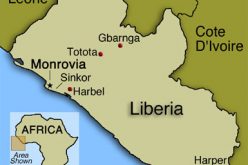 BBC News – Kenyan President Uhuru Kenyatta has set fire to a huge stockpile of ivory in an effort to show his country’s commitment to saving Africa’s elephants.
BBC News – Kenyan President Uhuru Kenyatta has set fire to a huge stockpile of ivory in an effort to show his country’s commitment to saving Africa’s elephants.
More than 100 tonnes of ivory was stacked up in pyres in Nairobi National Park where it is expected to burn for several days.
The ivory represents nearly the entire stock confiscated by Kenya, amounting to the tusks of about 6,700 elephants.
Some disagree with Kenya’s approach, saying it can encourage poaching.
Before igniting the first pyre, Mr Kenyatta said: “The height of the pile of ivory before us marks the strength of our resolve.
“No-one, and I repeat no-one, has any business in trading in ivory, for this trade means death of our elephants and death of our natural heritage.”
The burning comes after African leaders meeting in Kenya urged an end to illegal trade in ivory.
Experts have warned Africa’s elephants could be extinct within decades.
But some conservationists have expressed opposition to the ivory burn in Kenya, the biggest in history.
They say destroying so much of a rare commodity could increase its value and encourage more poaching rather than less.
Botswana, which is home to about half of Africa’s elephants, is opposed to the burn and its president did not attend the event in Nairobi.
Demand for ivory comes largely from Asia, with the main trafficking route being through the Kenyan port of Mombasa.
The ivory is getting through because people are prepared to pay for it. Stopping the men with arrows and the corrupt officials is just one part of the solution – the other is destroying the hunger for ivory.
The love of ivory goes back millennia. Its pure, translucent beauty and the ease with which a tusk can be carved into intricate sculptures have given it a lasting value throughout the ages.
Tackling demand and destroying the market are both important but there are also ways of making elephants more valuable alive than dead.
In the parks and game reserves of Africa, close encounters with the most remarkable animals on the planet lie in wait – you just need time, patience and a good eye.










